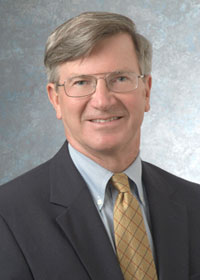National Institutes of Health funding will aid in effort to create open-source network for researchers nationwide
Case Western Reserve University and The MetroHealth System and are working together to develop an open-source network that will allow researchers around the country access to groundbreaking technology developed in Cleveland that can help individuals regain bodily function after devastating injury or disease.
The work is being supported by a three-year, $12.5 million grant from the National Institutes of Health (NIH) and was announced by MetroHealth.

The team includes principal investigator Kevin Kilgore, a staff scientist in the MetroHealth Center for Rehabilitation Research and professor of orthopedics and physical medicine and rehabilitation (PM&R) at Case Western Reserve University School of Medicine; Brian Smith of the Department of Biomedical Engineering at Case Western Reserve University; and Cindy Chestek of the Department of Biomedical Engineering at the University of Michigan.
The researchers are working to develop what they’ve called the Cleveland Open-Source Modular Implant Innovators Community, or COSMIIC.
New implantable tech based on P. Hunter Peckham work
The project will make available schematics for implantable technology that can help patients experiencing paralysis from spinal cord injury, stroke or other ailments regain bodily function.

The concept is based on a modular implantable system developed by Kilgore, Smith and P. Hunter Peckham, PhD, co-director of the MetroHealth Rehabilitation Institute and Distinguished University Professor at Case Western Reserve.
“If we are successful, more patients around the country will have access to these life-changing innovations developed right here in Cleveland,” said Kilgore, who is also a staff scientist in the Departments of Orthopedics and PM&R at MetroHealth. “Our goal is to empower researchers to offer hope to those who need it most.”
By making the technology more widely available to researchers, there’s potential to expand its use to an even broader range of diseases and disabilities. In addition, through the COSMIIC network, Kilgore and his team will offer assistance navigating the regulatory landscape that governs the use of such implantable technology.
For more information, contact Mike Scott at mike.scott@case.edu.

